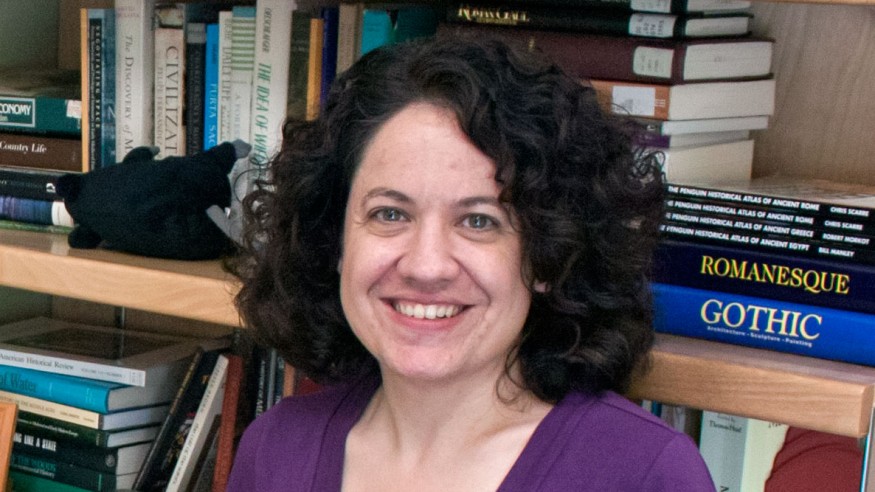
Hunting (and Fishing) for Understanding
Ellen Arnold, Ph.D., Examines Medieval and Modern Links in New Articles on Antonin Scalia and Marine Mammals
In The Atlantic online, Ohio Wesleyan’s Ellen Arnold examines “What Justice Antonin Scalia’s association with a shadowy medieval sect reveals about governing natural resources.”
“One of the stranger elements of Justice Antonin Scalia’s death last month at the Cibolo Creek Ranch in Texas has proved to be his connection to the International Order of St. Hubertus, a 17th-century Habsburg ceremonial order named after a 7th-century bishop of Liège—who became the patron saint of hunters and fishers,” writes Arnold, associate professor of history.
She notes that “Hubert and his cross-bearing stag may seem like something out of a Harry Potter novel or a quaint relic of a bygone superstitious era. But today, he and other medieval saints can be models for how to think about the complex motives in the national discourse about resource rights and use. …
“Scalia had a lot more in common with Saint Hubert than hunting,” Arnold continues. “The justice was responsible for several landmark decisions about land use, including 1987’s seminal Nollan v. California Coastal Commission, which distinguished between ‘a valid regulation of land use’ and ‘an out-and-out plan of extortion.’ Medieval monks like Hubert would be proud.”
In addition to exploring the medieval-modern connections among the Saint and Supreme Court justice, Arnold also tackles “Washed Ashore: Marine Mammals from Medieval Times to Today” in The Ohio State University’s “Origins,” a publication that places current events in a historical perspective.
“Whereas for millennia, humans have turned the death of the animal into a resource and incorporated it into human survival and sustenance, today it may appear that we ‘waste’ the dead and dying animals,” Arnold writes. “Yet beneath the striking surface differences, a common concern emerges. …
“In the modern world, we are also deeply concerned with scarcity and abundance – through the lens of science, we count beached porpoises as a kind of a measure of and a talisman against our fears about marine scarcity. … As conservationists look for more effective and resonant ways to invoke action aimed at the preservation of marine resources, they may find useful ideas in the actions and ethics of the pre-modern world, and in the deeper history of Christianity.”
At Ohio Wesleyan, Arnold teaches ancient, medieval, and early modern history. Her academic interests include the ways medieval people incorporated nature and the environment into both their everyday life and into their cultural imagination. In 2012, she served as a Fellow at the Rachel Carson Center for Environmental Studies, working on a history of medieval views of rivers and water control.
Learn more about Arnold and Ohio Wesleyan’s Department of History at www.owu.edu/history.
